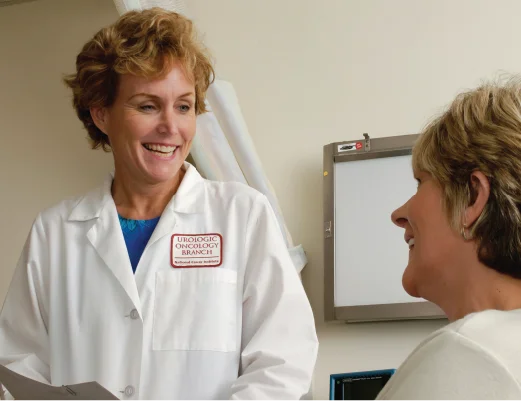PERIMENOPAUSE
Understanding the change
Understanding The First Signs of Perimenopause
What is Perimenopause?
Perimenopause, also known as the menopausal transition, is the time when your body starts to make the natural shift toward menopause, marking the end of your reproductive years. It can begin as early as your mid-30s or as late as your 50s. This stage is different for everyone, but it usually lasts about 4-8 years
During perimenopause, you might notice some of the following symptoms:
- Irregular Periods: Your menstrual cycle may become unpredictable.
- Hot Flashes: Sudden feelings of warmth, often in the upper body.
- Sleep Problems: Trouble falling or staying asleep.
- Mood Changes: Feelings of irritability, depression, or anxiety.
- Vaginal Dryness: Less natural lubrication, which can cause discomfort

These are a few early perimenopause symptoms. For detailed list click below.
It’s completely normal to experience these symptoms, but if they start to interfere with your daily life or become overwhelming, don’t hesitate to consult healthcare providers. They can help you find effective strategies and treatments to manage your symptoms and improve your quality of life.
Why does Perimenopause happen?
Perimenopause occurs because your ovaries gradually produce less estrogen, the hormone that regulates your menstrual cycle. This decrease in estrogen affects various parts of your body, leading to the symptoms we mentioned above.
How to manage perimenopause symptoms?
Here are some tips to help you manage perimenopause symptoms:

HEALTHY DIET
Eat plenty of fruits, vegetables, and whole grains. Reduce intake of caffeine and alcohol.
EXERCISE REGULARLY
Physical activity can help manage weight, improve mood, and promote better sleep.

STAY HYDRATED
Drink plenty of water to help with hot flashes and overall health.
SLEEP HYGIENE
Establish a regular sleep schedule and create a comfortable sleeping environment.

STRESS MANAGEMENT
Practice relaxation techniques like yoga, meditation, or deep breathing exercises.
When to Seek Help?
While perimenopause is a natural phase, it’s essential to seek medical advice if your symptoms are severe or affecting your quality of life. Your healthcare provider can offer treatments and strategies to help you manage this transition more comfortably.
GETTING THE HELP YOU NEED
Connect and Thrive: Join a Circle of Support
Navigating perimenopause and menopause can be challenging, but you don’t have to do it alone. Consider joining women’s communities specifically for perimenopause and menopause. These groups offer a safe space to share experiences, receive support, and access expert advice.

SUPPORT AND ENCOURAGEMENT
Share your experiences and get support from others who understand what you’re
going through.

EXPERT ADVICE
Access tips and guidance from health professionals.

REAL-TIME UPDATES
Stay informed about the latest health news and updates on Miror products.

EXCLUSIVE OFFERS
Get early access to promotions and special deals on Miror Revive other products, workshops, and events.
If you’re looking for a community that understands your journey, consider joining Miror For Women.
Lab Tests and Screening As women approach perimenopause, the body’s nutritional needs can shift, making it essential to provide additional support. Hormonal changes can lead to symptoms like fatigue, mood swings, and bone density loss, which may not always be fully managed through diet alone. This is where supplementation plays a crucial role.
By incorporating the right supplements into your daily routine, you can help bridge nutritional gaps, support your body’s natural processes, and ease the transition. Supplements designed for women over 35 can offer targeted benefits, such as enhancing energy levels, promoting hormonal balance, and supporting overall well-being during this phase of life. Prioritizing supplementation is a proactive way to care for your health, ensuring you stay vibrant and resilient as your body undergoes these natural changes.
IMPORTANT SUPPLEMENTS FOR WOMEN OVER 35
CALCIUM AND VITAMIN D
Essential for maintaining bone health and preventing osteoporosis, which becomes
more of a concern during perimenopause.
OMEGA-3 FATTY ACIDS
Support heart health, reduce inflammation, and may help manage mood swings.
VITAMINS-B
(especially B6 and B12)
Vital for energy production, brain health, and hormonal balance.
MAGNESIUM
Helps with muscle relaxation, sleep, and bone health, while also supporting stress
management.
VITAMIN-C
Boosts the immune system, promotes skin health, and supports collagen production.
VITAMIN-E
Acts as an antioxidant and may help reduce symptoms of menopause, such as hot flashes.
PROBIOTIC
Support gut health, which is crucial for overall well-being, immune function, and
hormonal balance.
IRON
Important for women who may experience heavy periods during perimenopause,
helping to prevent anemia and fatigue.
COENZYME Q10
Supports energy production at the cellular level and promotes heart health.
ADAPTOGENS
(like Ashwagandha or Rhodiola)
Help the body adapt to stress and support hormonal balance. TRANSRESVERATROL
A powerful antioxidant that promotes heart health, supports brain function, and has anti-aging benefits.
Incorporating these supplements into your routine can help ensure you meet your body’s needs during this transitional phase, allowing you to maintain vitality and well-being. If you’re considering adding a comprehensive supplement to your daily regimen, Miror Revive offers a blend of 9 powerful ingredients designed to support women over 35 through perimenopause and beyond.
Lab Tests and Screening
Regular lab tests and screenings are crucial, especially during perimenopause , as they help monitor changes in your body and catch any potential health issues early. The Miror App makes it easy to book and track your lab tests, ensuring you stay on top of your health. Download the Miror App today to get started.
Consultations with Menopause
Experts
Navigating perimenopause can be complex, and consulting with doctors who specialize in menopause is key to receiving the right advice and treatment. Menopause experts understand the unique challenges you face and can offer personalized care tailored to your needs. The Miror App connects you with these professionals, so you can get the support you need when you need it. Download the Miror App to access expert consultations.
Gaming for Cognitive Health
Perimenopause can bring challenges like brain fog and difficulty focusing, but engaging in cognitive games can help keep your mind sharp. The Miror App offers fun and stimulating games designed to improve focus, memory, and overall brain health, helping you manage these symptoms effectively. Download the Miror App and start boosting your cognitive health today.Access to Educational Resources
The right educational resources are essential during perimenopause, helping you understand your body’s changes and make informed decisions about your health. The Miror App provides a comprehensive library of quizzes, blogs, and articles, giving you the knowledge you need to navigate this journey confidently. Download the Miror App and stay informed with the best resources at your fingertips.Many women go through perimenopause, and it’s a shared experience. Feel free to reach out, join support groups, and talk openly about your experiences. You’re not alone, and there’s a wealth of information and support available to you.
STAY INFORMED
Stay informed and proactive about your health during this time. Knowledge is empowering, and understanding what’s happening in your body can make this transition smoother.
Thank you for visiting our Perimenopause Resource Page. We’re here to support you every step of the way. If you have any questions or need further assistance, don’t hesitate to reach out.
Take care, and remember—this is a natural part of life, and you’re doing great!FAQs
Yes, changes in hormone levels during perimenopause can affect your libido. Some women may experience a decrease in sex drive, while others may not notice much change. Vaginal dryness, another symptom of perimenopause, can also impact sexual comfort and enjoyment. Lubricants or hormone treatments may help, and it's important to communicate with your partner about your needs.
Perimenopause is the transition period leading up to menopause, characterized by various symptoms like irregular periods, hot flashes, and mood swings. Menopause is the point when you have gone 12 consecutive months without a menstrual period, marking the end of your reproductive years. After menopause, you enter the postmenopausal phase.
Yes, weight gain is a common concern during perimenopause due to hormonal changes that can slow metabolism. Lifestyle factors, such as reduced physical activity and changes in diet, can also contribute. Maintaining a healthy diet and regular exercise can help manage weight during this phase.
There is no single test to confirm perimenopause. However, your doctor may use blood tests to check hormone levels, such as estrogen and follicle-stimulating hormone (FSH), along with your symptoms and menstrual history, to determine if you are in perimenopause.
Yes, hormonal changes during perimenopause can lead to hair thinning or hair loss. Lower estrogen levels can affect the hair growth cycle, making hair more prone to shedding. Maintaining a healthy diet, managing stress, and using gentle hair care products can help minimize hair loss.
Yes, the decline in estrogen levels during perimenopause can lead to a decrease in bone density, increasing the risk of osteoporosis. Ensuring an adequate calcium and vitamin D intake, along with regular weight-bearing exercise, can help protect bone health.
Perimenopause can increase the risk of cardiovascular disease due to changes in cholesterol levels, blood pressure, and the protective effects of estrogen on the heart. It's important to monitor heart health during this time by maintaining a healthy lifestyle and having regular check-ups with your healthcare provider.
Yes, hormonal fluctuations during perimenopause can contribute to feelings of anxiety, depression, and mood swings. If these feelings are severe or persistent, it's important to seek support from a healthcare provider who can offer treatments or therapies to help manage these symptoms.
Night sweats are episodes of excessive sweating during sleep, often caused by hot flashes. They are common during perimenopause due to hormonal changes affecting the body's ability to regulate temperature. Keeping your bedroom cool and wearing light clothing to bed can help manage night sweats.
Yes, diet plays a significant role in managing perimenopause symptoms. A balanced diet rich in fruits, vegetables, whole grains, and lean proteins can help manage weight, improve mood, and reduce the risk of chronic conditions. Certain foods, like those high in caffeine or sugar, may exacerbate symptoms like hot flashes and mood swings.
Yes, it's normal to experience heavier or longer periods during perimenopause due to hormonal imbalances. However, if you have very heavy bleeding or periods that last more than seven days, it's important to consult your healthcare provider to rule out other conditions.
Absolutely. Lifestyle changes such as regular exercise, a balanced diet, adequate sleep, and stress management can significantly help ease perimenopause symptoms. These changes can also improve overall health and well-being during this transitional phase.
Some women find relief from perimenopause symptoms using herbal remedies like black cohosh, evening primrose oil, or red clover. However, it's important to consult with a healthcare provider before starting any herbal treatments, as they can interact with other medications and may not be suitable for everyone.
During perimenopause, decreased estrogen levels can lead to skin changes such as dryness, thinning, and loss of elasticity. These changes can make the skin more prone to wrinkles and sensitivity. Using a good moisturizer, staying hydrated, and protecting your skin from the sun can help maintain skin health.
While perimenopause is a natural phase, it can lead to long-term health concerns such as osteoporosis, cardiovascular disease, and increased risk of certain cancers due to hormonal changes. Regular health check-ups and a proactive approach to managing your health can help mitigate these risks.




